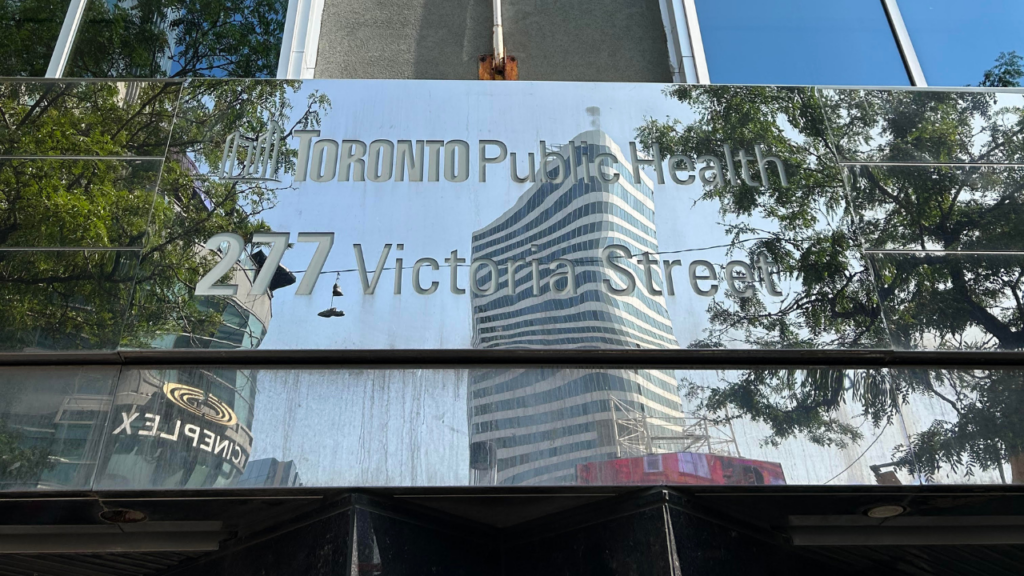
Listen to the whole story here:
The supervised consumption site on Victoria Street is set to close by March 31, 2025 — and the reaction from students at Toronto Metropolitan University (TMU) is mixed.
The site is one of five locations in the city slated for closure, after the provincial government banned the operation of the sites within 200 metres of schools and child-care centres.
But shutting them down is a “double-edged sword,” said Sebastian Kidston, a fifth-year chemistry student.
“Realistically, these people do need somewhere to go,” said Kidston, “but it’s not really the safest environment to have it next to a school.”
Data shows a 72 per cent increase in the number of accidental substance-related toxicity deaths from 2018 to 2022.
The announcement was met with criticism from organizations like the Centre for Addictions and Mental Health (CAMH), which released a statement saying the closures will cause harm to communities and put more pressure on other parts of the healthcare system.
“They are a necessary part of a comprehensive response to the toxicity crisis,” CAMH said.
Second-year geographic analysis student Michelle Chavez agreed that shutting these sites down is generally a bad idea. However, she said she feels unsafe with one so close to the school.
“I think it’s important that there’s a safe place to do that (supervised drug consumption),” she said, “but not on a student campus.”
Chavez said she’s used the university’s 24-hour WalkSafe program when walking near the SCS because she feels uneasy being near it alone.
Kidston said he has friends and coworkers that refuse to walk down Victoria Street, even if it’s during the day.
Relocation is the solution, said Aliyah Marinez, a first-year politics and governance student.
“If it was maybe another block or two down I think even that would be better,” she said.
A supervised consumption site (SCS) offers a clean, safe environment to individuals participating in drug-use, under the supervision of trained healthcare professionals, according to Health Canada. Substance use treatment and other social services are also accessible at these sites.
Their locations are purposeful for localizing substance use, said Simona Nixon, a fourth-year child and youth care student, who also works as a harm reduction case manager at the Fred Victor organization.
“Closing the sites could result in people using substances in the streets,” Marinez said. “Things could be left on the ground, that’s even more harmful.”
Ultimately, Nixon says the issue is not just about students.
“It’s not students versus community members or students versus homeless people,” she said. “Homeless people are a part of your city.”
Reporter at On The Record

